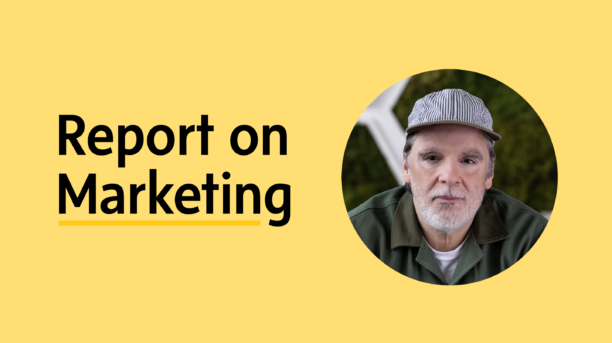Darian Kovacs, Partner at Jelly Digital Marketing & PR, highlights the skills and diversity benefits that digital learning programs bring to Canada’s marketing and technology sectors.
In today’s digital world, with the availability of online learning programs, education has become more accessible than ever before. However, significant barriers still exist for many marginalized communities, preventing them from fully accessing the benefits of digital learning and online programs.
Providers such as North Vancouver’s First Nations Technology Council (FNTC), Calgary-based Plato Tech Training, and Toronto’s Palette Skills and Growclass are at the forefront of breaking down these barriers for underserved communities including gender minorities and Indigenous Peoples, as well as supporting Canadian Armed Forces Members in their transition to civilian careers.
These organizations are implementing innovative solutions, such as targeted scholarships, community partnerships, and flexible learning schedules, to ensure everyone can benefit from digital education regardless of background or circumstances.
 Online learning programs offer a unique solution to accessibility problems by eliminating the need for a physical presence, allowing students to complete work anytime, anywhere. This learning style provides freedom and flexibility for many, such as students from remote areas far from institutions, or primary caregivers who would otherwise need to arrange day-care.
Online learning programs offer a unique solution to accessibility problems by eliminating the need for a physical presence, allowing students to complete work anytime, anywhere. This learning style provides freedom and flexibility for many, such as students from remote areas far from institutions, or primary caregivers who would otherwise need to arrange day-care.
Additionally, digital learning is often structured into self-paced modules with pre-recorded lectures, reducing costs compared to live classroom sessions and making education more accessible for those who might otherwise be unable to afford it or travel to a classroom.
Boosting diversity in marketing
Vancouver’s Jelly Academy, along with Growclass, is a delivery partner of Digital Marketing Skills Canada (DMSC), a Government of Canada-funded initiative, led by the Canadian Marketing Association.
The program aims to help those seeking a career shift into marketing or to upgrade their existing knowledge and skills to further their current employment position, and benefits the marketing community through the addition of knowledgeable, skilled digital marketers to the workforce, and is another opportunity for underserved individuals to access digital learning education programs.
Jacqueline Parakin, a Jelly Academy graduate, says: “I was fortunate to be generously awarded the Gender Equity Scholarship, without which I wouldn’t have been able to attend this course. As a woman in a small business competing against large corporations, it is difficult, and with such a small budget for marketing, it has been daunting and unrealistic to tackle myself. This course allowed me to learn how to use my very limited budget, understand advertising, and market myself effectively for my small business.”
Palette Skills is another program making significant strides in enhancing accessibility for underserved groups, particularly Canadian Armed Forces members. Many active service members and veterans face barriers to accessing education and career opportunities due to frequent relocations, extended deployments, and the challenge of translating military experience into civilian job skills.
In partnership with the Government of Canada, Palette Skills offers financial aid, scholarships, and specialized programs designed to help veterans and active service members transition to new careers in the civilian workforce. This support helps veterans gain valuable new skills, empowering them to embark on successful career journeys post-service.
Connecting Indigenous peoples with tech training
Meanwhile the First Nations Technology Council (FNTC) is an Indigenous-led non-profit that provides programs to advance digital literacy, improve internet connectivity, and offers guidance on data and digital technology for all 204 First Nations peoples across British Columbia. The FNTC is working to weave Indigenous knowledge, culture, and ways of being into technology through offering 18 different, fully funded Indigenous-designed technology training courses.
“Because of the lack of jobs in my village, I was forced to move away. I then discovered the First Nations Technology Council and was introduced to a career path,” says FNTC alumni Leonard Samuel Cody Moore. “The structure of the curriculum made a lot of sense to me, and they brought in First Nations professionals who talked about the importance of having representation in technology to preserve our cultures. I have since been able to move home and am helping connect the Nisga’a Nation to fibre optic.”
By addressing the barriers that exist in traditional education and offering a way to combat time, location, and cost restraints, programs including Jelly Academy, Growclass, Palette Skills, and FNTC provide underserved communities with the tools they need to succeed and to further achieve education equity.
 However, there is still much work to be done. Supporting and expanding these initiatives is essential in ensuring that every individual can benefit from digital education and learning regardless of their background or situation. Investing in technology, providing flexible learning options, and fostering partnerships can create a future where education is accessible to all.
However, there is still much work to be done. Supporting and expanding these initiatives is essential in ensuring that every individual can benefit from digital education and learning regardless of their background or situation. Investing in technology, providing flexible learning options, and fostering partnerships can create a future where education is accessible to all.
To get started with digital learning programs prospective students can visit their respective websites to explore course offerings, financial aid opportunities and application requirements. This is a real opportunity to invest in your future, while contributing to a more inclusive and equitable workforce.
Jelly Digital Marketing & PR is a member of the Institute of Canadian Agencies (ICA). Report on Marketing is where leading Canadian agencies showcase their insights, cutting-edge research and client successes. The Report on Marketing provides a valuable source of thought leadership for Canadian marketers to draw inspiration from. Find more articles like this at the Report on Marketing.
See all Ideas & Insights




